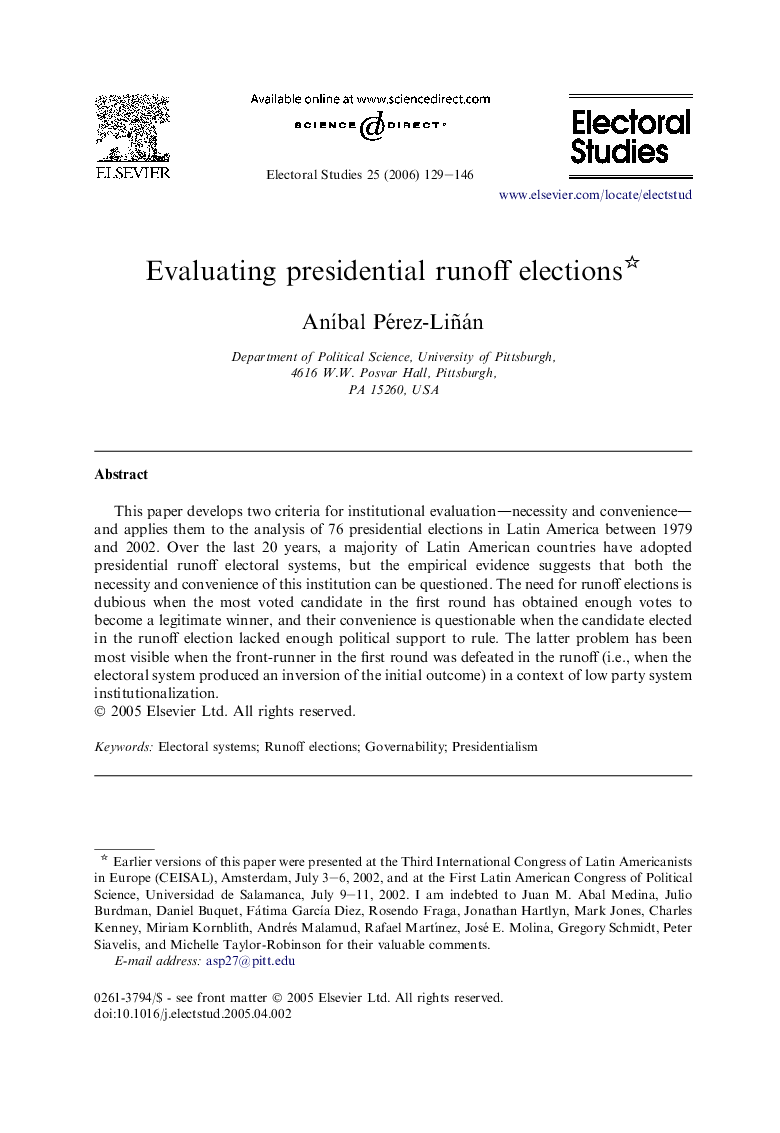| Article ID | Journal | Published Year | Pages | File Type |
|---|---|---|---|---|
| 1052597 | Electoral Studies | 2006 | 18 Pages |
This paper develops two criteria for institutional evaluation—necessity and convenience—and applies them to the analysis of 76 presidential elections in Latin America between 1979 and 2002. Over the last 20 years, a majority of Latin American countries have adopted presidential runoff electoral systems, but the empirical evidence suggests that both the necessity and convenience of this institution can be questioned. The need for runoff elections is dubious when the most voted candidate in the first round has obtained enough votes to become a legitimate winner, and their convenience is questionable when the candidate elected in the runoff election lacked enough political support to rule. The latter problem has been most visible when the front-runner in the first round was defeated in the runoff (i.e., when the electoral system produced an inversion of the initial outcome) in a context of low party system institutionalization.
